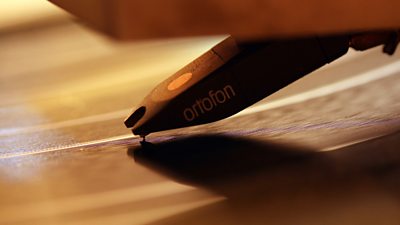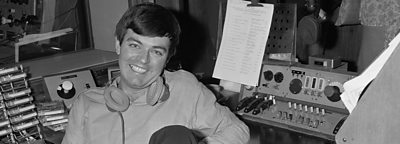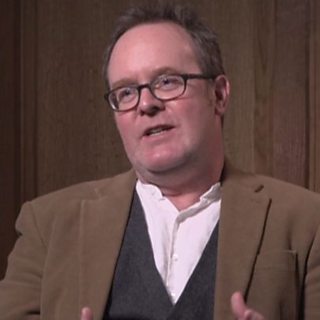Had you tuned in your radio set to 247 metres medium wave at 7 o’clock on that Saturday morning you would have heard "the exciting new sound of Radio 1".
Recalling that ground breaking moment fifty years later in a new interview for the BBC Connected Histories project, Tony Blackburn explains how he prepared for the start of Radio 1.
Radio 1 was getting all the attention. But its launch also involved a more radical set of changes. The Light, Third and Home Service also metamorphosed that day into Radios 2, 3, and 4, respectively.
And change was almost certainly overdue. For decades, the overall pattern of radio broadcasting in Britain had been moving at a glacial pace. On the outbreak of the Second World War the BBC National Programme was re-designated the BBC Home Service.
In July 1945, after Allied victory in Europe, the wartime Forces Programme, which was a source of ‘light entertainment’ for listeners at home and overseas, became the Light Programme. And just over a year later, the BBC launched the aptly named Third Programme to cater for cultural output such as literary debate and classical music. This radio landscape remained relatively unaltered and unchallenged… until, that is, the early-1960s.
The pirate radio stations that appeared in 1964 had provided the immediate shock to the system. But the launch of Radio 1 was more than a response to these buccaneering upstarts. It was also part of a deeper cultural revolution that was taking place within the BBC – one that raised as many questions as it answered.
The arrival of disc jockeys such as Tony Blackburn, Kenny Everett, Johnnie Walker, Emperor Rosko and others, ushered in the new era. As their contemporary Terry Wogan observed, “the poachers became game keepers.” This was not an easy transition for the BBC to make, creating a certain degree of friction between the old and the new guard at Broadcasting House, as the first Controller of Radios 1 and 2, Robin Scott, recalled.
For Scott, Radio 1 was “a little Pirate ship on the back end, not the prow end, but very much at the stern of Broadcasting House”. It also offered the more adventurous amongst the BBC’s existing staff an opportunity to experiment with new styles of broadcasting live and recorded music. There were those, however, who questioned the wisdom of the BBC embarking on this new radio adventure.
The pirates, at least some of them, had demonstrated the commercial viability of pop music broadcasting, through advertising. Critics from the worlds of politics and business wondered why the BBC should monopolise popular music broadcasting in the UK when commercial alternatives could be found?
Tony Benn, who, as Postmaster-General, had originally proposed that the BBC start the new service argued that it should be done on the basis of sponsorship and advertising. Moreover, was it part of the BBC’s public service remit to promote pop music and the entertainment industry it supported? For some, both inside and outside the BBC, it all seemed a bit vulgar.
However, as the person responsible for reorganising the BBC’s radio services in 1967, Gerard Mansell believed this was a return to, not a departure from, the public service roots of the BBC.
For David Hatch, a former Controller of Radio 2 (1980-83) and Managing Director of Radio (1987-93) it was the mass appeal of popular music that gave it, under BBC auspices, such continuing significance as a public service. Through its mixed economy of music, news and special feature broadcasting, Radio 1 enabled the BBC to engage a huge audience, of predominantly young people, on a range of political and social issues that they might not encounter elsewhere.
1967 was a turning point in the consumption and spread of popular music culture in the United Kingdom. What had started three years previously as an insurgent pirate attack on the radio establishment was becoming, by the time Tony Blackburn sat down at a BBC microphone on the morning of 30 September, part of the status quo. It was also a landmark moment for all the BBC’s radio operations as they were reconfigured to meet the future demands of radio broadcasting in the life of the nation.
Needle Time

In our current age of entertainment overload it seems bizarre, almost comical, that in 1967, as it launched Radios 1, 2, 3 and 4 the BBC was not permitted to play more than seven hour’s worth of recordings in a single day across all of its four radio networks.
For the Controller of Radio 1 and 2, Robin Scott, it was one of the toughest challenges he faced when putting together the new services. So severe were the restrictions that they left an indelible mark on output: “the final plans for Radio 1 and 2 did not go as far as I would have liked mainly because of shortage of needle-time. Because of this almost every programme consisting only of records has to be shared with Radio 2”.
Needle-time was the number of hours in a day a broadcaster was allowed to play records. It was administered by Phonographic Performance Limited, which collected royalties on behalf of record companies and performers. The concern was that unrestricted access to recorded music would damage sales, though the record industry’s tacit support of the pirate stations, as a means of promotion, made this stance somewhat equivocal. Meanwhile, the Musician’s Union’s commitment to live music performance, as a way of supporting its membership, added considerably to the pressure to restrict the use of recordings.
For Tony Blackburn, who had revoked his membership of the Musician’s Union on joining the pirates, the needle-time restriction made it difficult to transfer the pirate style to the BBC.
Although an extra two hours of needle-time per day had been added in time for the 1967 launch, the challenge of building a new network on such limited means was a real struggle. As Robin Scott explains, he was reduced to begging his fellow BBC Controllers for any scraps they could spare.
Related links
-
PAMS Jingles Creators of the 1967 Radio 1 launch jingles (composer: David Cunningham)


